QuestionHi there! I have a 3 month old lovebird named Banjo. He is super
friendly and social and is always on my shoulder or head
hanging out. The problem I'm having with him is chewing. He
bites my fingers (as I type this), he gnaws on my rings and
earings...I can take these off but he likes to chew fingers. It's
never very hard or done out of anger but I'm concerened that he
is getting into a bad habit. I say 'No biting' in a stern voice but
he just looks at me for a second and does it again. He's very
persistent. I also try shaking my hand so he lets go to get his
balance but it doesn't work. Well, any advice you can give me
would be great!
Thanks so much!
Erin
AnswerHi, Erin. Thanks for posting your concern.
Chewing is a natural behavior for parrots. All parrots chew things, regardless of their age. Parrots especially like shiny, sparkly things, like rings and earrings. I won't tell you how many pierced earrings I've lost to my birds! Also, baby parrots teethe, just like human babies do. Therefore, it is not abnormal behavior for your baby lovebird to want to chew whatever he can get his beak on. Be careful, however, that you are not confusing chewing with your lovebird using his tongue to "feel" things. In other words, parrots use their tongues as a "finger" to feel/discover what things are. A lot of times, people think a parrot is trying to bite when actually a parrot is placing it's beak around something (like a finger) in order to use it's tongue to figure out what something is or to "taste" something to try and determine if it's edible or not. This is especially true of baby parrots, who have a lot to discover in their young lives. Your fingers have bones in them and your lovebird can feel these bones and thinks your finger is something good to chew on!
You are doing right in trying to teach him/her what is/isn't acceptable to chew. Telling him/her "no bite" is good, but you have to follow up/be consistent each and every time s/he exhibits this behavior in order for your lovebird to learn the difference as to what s/he can chew and not chew. In other words, you can't tell s/he "no bite" one time and then give in when s/he doesn't listen (immediately after or later on). After telling s/he "no bite," give s/he something to chew on that is acceptable to chew, such as a piece of wood, parrot toy, etc. You can also try saying "no bite" and then place Banjo on his cage. After a few minutes, allow Banjo back on your hand/shoulder until s/he tries nibbling again, then place Banjo back on the cage again. Banjo should soon learn that placing his beak around your finger and/or chewing on your rings/earrings in unacceptable behavior. In addition, be sure YOU know the difference between s/he wanting to chew versus using his/her tongue to discover what something is. If you look closely, the end/tip of a parrot's tongue is like leather, which contains nerve endings, so it can "feel" the texture of things, similar to the tips of our fingers. Be aware, also, that parrots are just like children...they will try to see what they can get away with with their humans. In other words, they will do whatever their humans allow them to get away with (they "test" us, psychologically speaking). We have to be smarter than they are and use reverse psychologically! Also don't forget that a good way to teach a parrot the difference between acceptable and unacceptable behavior is to reward acceptable behavior and to completely ignore unacceptable behavior. In other words, when you tell Banjo "no bite" and s/he doesn't bite or quits nibbling, reward with his/her favorite treat EACH AND EVERY TIME. If Banjo continues the unacceptable behavior, place Banjo on his cage and ignore him for a few minutes. Then allow Banjo back with you until he exhibits the unacceptable behavior again, then put him on the cage again. It's a matter of teaching right from wrong and your signals MUST be very clear to your lovebird to avoid any confusion on his part.
Your lovebird will continue to want to chew throughout his/her lifetime, therefore, you need to provide acceptable items for s/he to chew on. Be aware that s/he will most likely destroy most of what it chews, especially wooden items (woodwork, wooden toys, wooden furniture, etc.). It is important that you provide things your lovebird can chew on/destroy...it's just part of normal parrot behavior.
Come back if you have further questions. Thanks.
Chrys

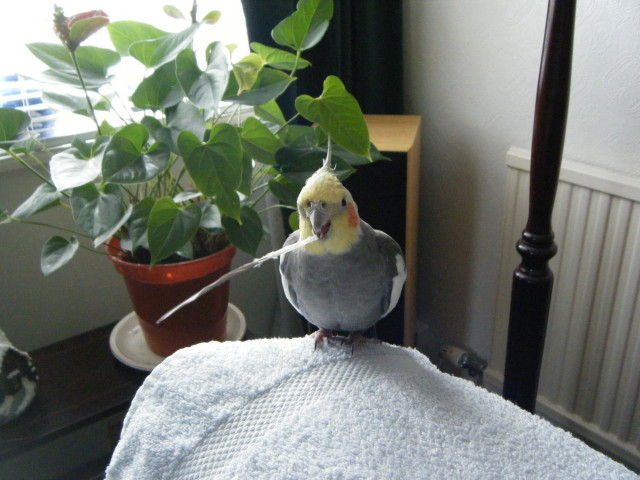 boris the cockatiel
Question
boris
Hello , I have a male cockatiel called b
boris the cockatiel
Question
boris
Hello , I have a male cockatiel called b
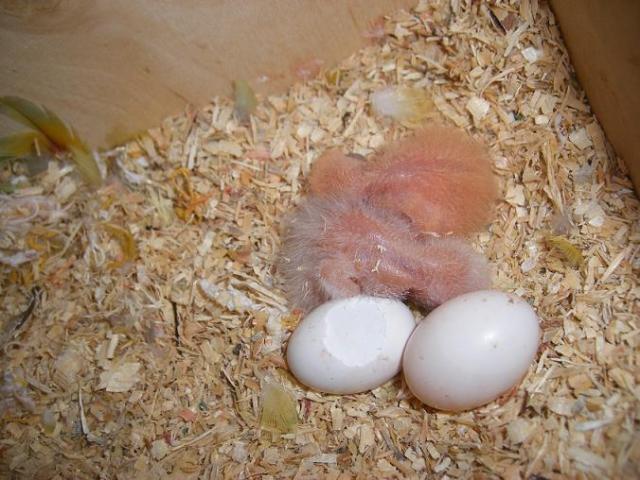 Eggs! :(
QuestionBroken Egg
QUESTION: I understand lovebi
Eggs! :(
QuestionBroken Egg
QUESTION: I understand lovebi
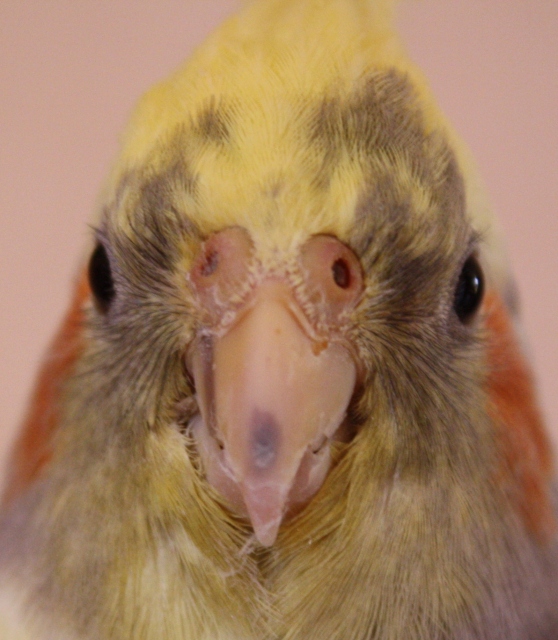 Bruise-like discoloration of beak (Cockatiel)
QuestionSasha
QUESTION: Our Cockatiel has develo
Bruise-like discoloration of beak (Cockatiel)
QuestionSasha
QUESTION: Our Cockatiel has develo
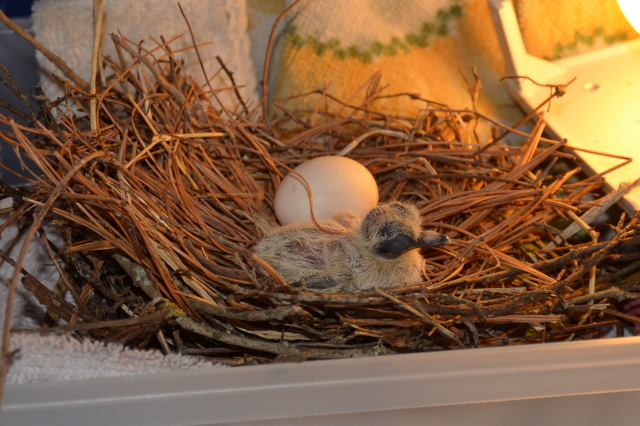 mourning dove
Question
baby mourning dove
Hello,
My boys found a baby
mourning dove
Question
baby mourning dove
Hello,
My boys found a baby
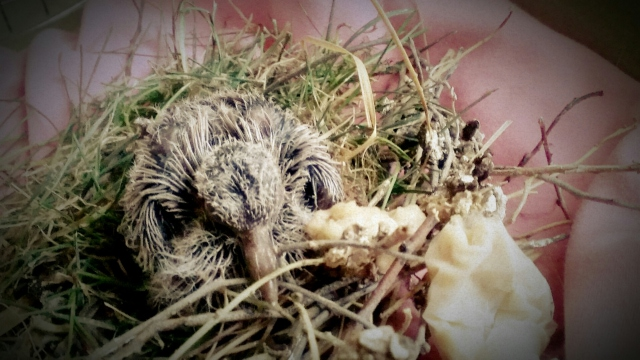 Baby Dove Care
Question
Baby Bird 1 Baby Bird 2
Hello, to
Baby Dove Care
Question
Baby Bird 1 Baby Bird 2
Hello, to